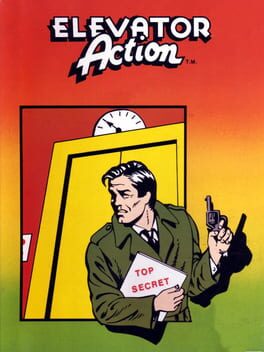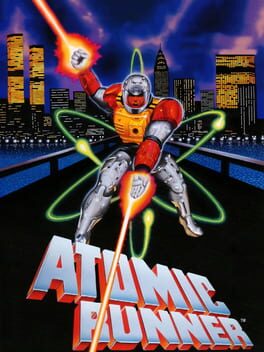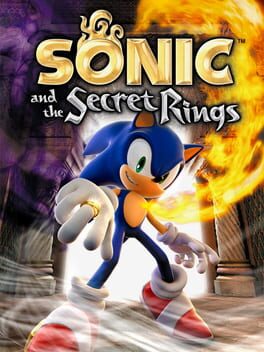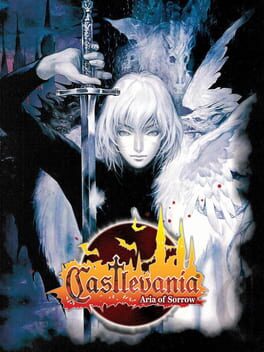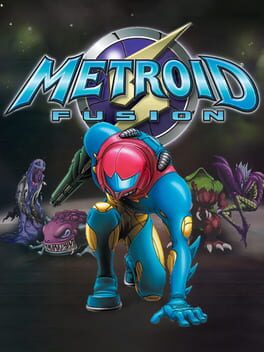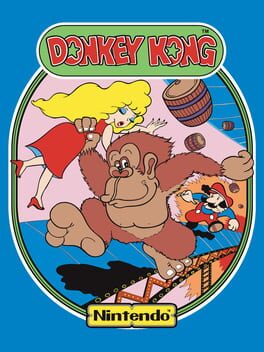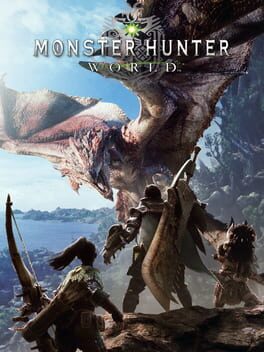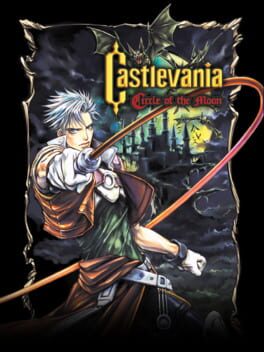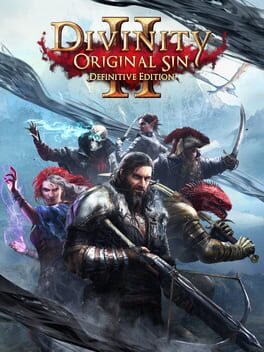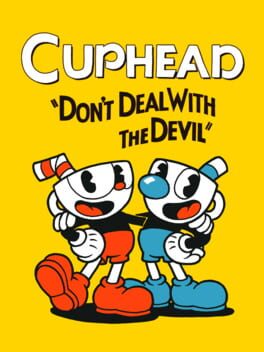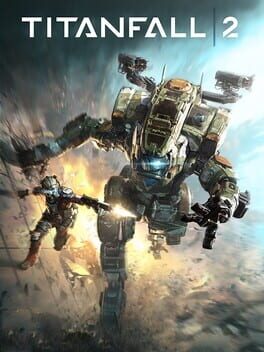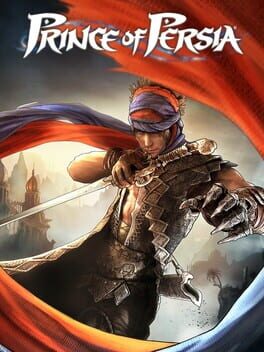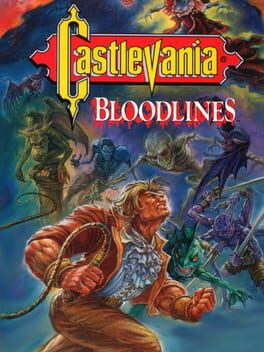1983
1988
Sonic fans on this page only rated this game so low because they're salty that it doesn't have Big the Cat in it. Look, here's the thing: the Wii's vanilla motion controls don't really work, so this game was doomed from the start. That said, they were at least trying something different from the core Sonic games, which really, really stunk around this time. (Just to clarify, Secret Rings released a scant 1 year after the disaster known as Sonic 2006, and it's certainly a great deal better than that franchise low-point.) Definitely worth checking out if you're curious to see how an genuinely novel platformer might have taken advantage of the Wii's motion controls, if you're willing to accept from the start that the experiment utterly failed.
I don't purport to be some sort of Metroidvania expert, but I have played quite a few of them over the past few months. That might seem like a strange way to start a review, but I just wanted to provide context for the following statement, which might come off as a bit controversial: I think Castlevania: Aria of Sorrow is not only the best Castlevania game by a pretty significant margin, it's also the best Metroidvania I've ever played.
The game's Tactical Soul system is the real star of the show here. Having just played its predecessor Circle of the Moon, it's really hard for me to overstate just how much of an improvement it is over that game's DSS system. Aria of Sorrow essentially takes the Mega Man concept of absorbing your foes powers to the logical limit without forcing you to engage heavily with it just to progress in the game. If you want to really go hog-wild and break the game, you can, but it strikes the fine balance between encouraging experimentation without mandating it.
Other than that, the thing that elevates Aria of Sorrow about its contemporaries is its level of precision and polish. Pretty much every aspect of this game is sharpened to the point of absolute excellence, from its pinpoint controls to its fantastic soundtrack to its expansive (but not too expansive) map. Aria also has one of the best-crafted difficulty curves I've seen in a game of this type. While I struggled with a handful of the game's bosses, they never felt unfair, and one of Aria's final foes is among the most memorable boss fights in any game I've ever played.
Even the game's story manages to take the old Castlevania formula and turn it on its head. It's nothing ground-breaking, but I actually connected to Aria's handful of characters far more than I expected, which is a testament to its power. Yes, this is a short game by Metroidvania standards, but I'd rather play a game that's four or five hours of pure brilliance than ten hours with 30% filler.
All-in-all, Aria of Sorrow is the apex of the Castlevania series, and a demonstration that games can be both innovative and expertly-wrought at the same time. If you're a Metroidvania fan who hasn't played this game, you owe it to yourself to check it out. Needless to say, I can't wait to play Dawn of Sorrow.
The game's Tactical Soul system is the real star of the show here. Having just played its predecessor Circle of the Moon, it's really hard for me to overstate just how much of an improvement it is over that game's DSS system. Aria of Sorrow essentially takes the Mega Man concept of absorbing your foes powers to the logical limit without forcing you to engage heavily with it just to progress in the game. If you want to really go hog-wild and break the game, you can, but it strikes the fine balance between encouraging experimentation without mandating it.
Other than that, the thing that elevates Aria of Sorrow about its contemporaries is its level of precision and polish. Pretty much every aspect of this game is sharpened to the point of absolute excellence, from its pinpoint controls to its fantastic soundtrack to its expansive (but not too expansive) map. Aria also has one of the best-crafted difficulty curves I've seen in a game of this type. While I struggled with a handful of the game's bosses, they never felt unfair, and one of Aria's final foes is among the most memorable boss fights in any game I've ever played.
Even the game's story manages to take the old Castlevania formula and turn it on its head. It's nothing ground-breaking, but I actually connected to Aria's handful of characters far more than I expected, which is a testament to its power. Yes, this is a short game by Metroidvania standards, but I'd rather play a game that's four or five hours of pure brilliance than ten hours with 30% filler.
All-in-all, Aria of Sorrow is the apex of the Castlevania series, and a demonstration that games can be both innovative and expertly-wrought at the same time. If you're a Metroidvania fan who hasn't played this game, you owe it to yourself to check it out. Needless to say, I can't wait to play Dawn of Sorrow.
2002
Let's get right to the heart of the matter: Fusion is, in my estimation, the worst entry in the core Metroid series. While that might be the bottom line, it's still a pretty great game. Unlike its contemporaries Zero Mission and Aria of Sorrow, Fusion feels smaller in scope and scale than its predecessors, which is both a boon and a bane. Hardcore genre aficionados might be somewhat put off by its relative linearity, but I personally don't mind it, and it opens up quite a bit past the first hour.
As a whole, Fusion makes some smart changes to the formula that Super Metroid established. The GBA's form factor and limited buttons necessitated a change in controls, but for my money, jettisoning the useless run button and simplifying Super's clunky weapon selection scheme are both significant improvements. The improved map is also a notable quality-of-life change, making it easier to see what color doors you've run into, as well as helping you track of whether or not you've nabbed a collectible that you found. Given that you'll often run into reserve tanks that you can't immediately pick up without a certain piece of tech, this is a welcome change.
For me, Fusion is a great game on paper, but its flaws all come from sketchy execution. The idea of making a more story-focused Metroid game was a decent direction for the series, but the narrative here leaves a lot to be desired. The X parasite is a fascinating concept that never really gets fleshed out, despite the constant exposition dumps that slow the game to a crawl. I really enjoy narrative in games, but there was really nothing to Fusion's story that improved the experience, other than the vague sense that you were going against the computer's desires in the later stages of the game. It could've made for a more HAL-style experience, but instead, all you get is a pretty flat turnabout in the last five minutes of the game that left me feeling pretty underwhelmed. It also planted the seeds for the rampant sexism of Other M, but that's not really Fusion's fault, so I can't really hold that against it.
Metroid Fusion also has some pretty serious issues with its difficulty curve. This isn't a particularly difficult game to finish, but it does seem like enemies deal a fairly ridiculous amount of damage, especially considering that the only healing pick-ups you get for 90% of the game give you 10 energy at a time. When even weak enemies deal 30, 50, or even 70 damage per hit, that's a lot of grinding for resources, and it's not like there are a ton of energy refill chambers throughout the station. Conversely, I only picked up something like 70% of the game's tank pickups, but I never found myself hurting for power bombs or missiles at any point in the game, which is an issue endemic to the Metroid series. Fusion also has some surprisingly creative boss fights, but their difficulty is all over the place: for example, I struggled against some nameless bosses halfway through the game, but breezed through some Iconic Series Foes near the end. It made for a pretty flaccid finale.
Overall, Fusion is still an engaging, fun game that kept me entertained throughout. However, it definitely exhibits some shortcomings that keep it from rising to the level of its immediate follow-up, Zero Mission. That said, if you're a fan of the series, there's no reason not to play it.
As a whole, Fusion makes some smart changes to the formula that Super Metroid established. The GBA's form factor and limited buttons necessitated a change in controls, but for my money, jettisoning the useless run button and simplifying Super's clunky weapon selection scheme are both significant improvements. The improved map is also a notable quality-of-life change, making it easier to see what color doors you've run into, as well as helping you track of whether or not you've nabbed a collectible that you found. Given that you'll often run into reserve tanks that you can't immediately pick up without a certain piece of tech, this is a welcome change.
For me, Fusion is a great game on paper, but its flaws all come from sketchy execution. The idea of making a more story-focused Metroid game was a decent direction for the series, but the narrative here leaves a lot to be desired. The X parasite is a fascinating concept that never really gets fleshed out, despite the constant exposition dumps that slow the game to a crawl. I really enjoy narrative in games, but there was really nothing to Fusion's story that improved the experience, other than the vague sense that you were going against the computer's desires in the later stages of the game. It could've made for a more HAL-style experience, but instead, all you get is a pretty flat turnabout in the last five minutes of the game that left me feeling pretty underwhelmed. It also planted the seeds for the rampant sexism of Other M, but that's not really Fusion's fault, so I can't really hold that against it.
Metroid Fusion also has some pretty serious issues with its difficulty curve. This isn't a particularly difficult game to finish, but it does seem like enemies deal a fairly ridiculous amount of damage, especially considering that the only healing pick-ups you get for 90% of the game give you 10 energy at a time. When even weak enemies deal 30, 50, or even 70 damage per hit, that's a lot of grinding for resources, and it's not like there are a ton of energy refill chambers throughout the station. Conversely, I only picked up something like 70% of the game's tank pickups, but I never found myself hurting for power bombs or missiles at any point in the game, which is an issue endemic to the Metroid series. Fusion also has some surprisingly creative boss fights, but their difficulty is all over the place: for example, I struggled against some nameless bosses halfway through the game, but breezed through some Iconic Series Foes near the end. It made for a pretty flaccid finale.
Overall, Fusion is still an engaging, fun game that kept me entertained throughout. However, it definitely exhibits some shortcomings that keep it from rising to the level of its immediate follow-up, Zero Mission. That said, if you're a fan of the series, there's no reason not to play it.
1981
7-year-old me was definitely not prepared to best this game in order to fight King K Rool in Donkey Kong 64. Revisited as an adult, it's a legitimately innovative game that sadly controls quite poorly no matter the platform. Worth checking out for the historical value, but when I'm actually at a retro arcade, this is one of the last games I put quarters in.
This was my introduction to MH, so my opinions on the franchise as a whole are still developing. When it comes to MHW, I think it's a great game that suffers from some niggling flaws that eventually grew to the point that they eclipsed my love for the game. I thoroughly enjoyed it up until the Elder Dragons, but I grew tired of the constant Bazelgeuse dive-bombs, the unwavering brutality of the last few bosses, and most of all the tedious grind of the endgame. Personally, I don't really enjoy loot-based games that much, so when MH becomes "kill the same monster dozens of times so you can finally build your endgame gear," that's when it loses me. Overall, I'm definitely going to check out more MH games, though.
Since my Castlevania marathon is now well into the franchise's pure Metroidvania period, a few friends of mine suggested I try this one out. Circle of the Moon is an odd duck, really. Ultimately, it's a very standard take on a latter Vania game that simultaneously tries to innovative in a few tiny ways that don't really work that well. The game's much-maligned DSS system is a great idea in theory, but the drop rate for most of the cards is so low that you really have to grind if you want to try out all of the different combinations, and some are definitely more useful than others. (Personally, I stuck to the flat 25% damage boost and the map-area percentage buff for 99% of the game, but that's just me.)
However, Circle's main issue isn't its level design, or its lack of fresh ideas, its by-the-numbers story, or the fact that its controls just feel a bit wonky. Rather, it's the game's uneven difficulty curve that tested me, especially in its second half. This is quite a tough game by any standard - particularly due to massive waves of respawning enemies, as well as endless hallways of four, five, six tough monsters at a time - but only two or three of the bosses really pushed me to try new tactics and combos, and they came at seemingly random points in the game's story. (Shout out to this game's version of the Twin Dragons for kicking my ass over and over.) This is all capped off with a final boss that definitely gives you what the kids call a "vibe check" if you aren't willing to spend all your resources. I personally love when a final foe wipes the floor with me a few times, but this version of True Dracula is something else: a boss seemingly designed from the ground up to be cheesed. Overall, Circle is a pretty impressive effort considering the fact that it was one of the very first GBA games ever released, but as a Metroidvania, it leaves a lot to be desired. I recommend this only to people who have already played the other classic portable Vanias, particularly Aria and Dawn of Sorrow.
However, Circle's main issue isn't its level design, or its lack of fresh ideas, its by-the-numbers story, or the fact that its controls just feel a bit wonky. Rather, it's the game's uneven difficulty curve that tested me, especially in its second half. This is quite a tough game by any standard - particularly due to massive waves of respawning enemies, as well as endless hallways of four, five, six tough monsters at a time - but only two or three of the bosses really pushed me to try new tactics and combos, and they came at seemingly random points in the game's story. (Shout out to this game's version of the Twin Dragons for kicking my ass over and over.) This is all capped off with a final boss that definitely gives you what the kids call a "vibe check" if you aren't willing to spend all your resources. I personally love when a final foe wipes the floor with me a few times, but this version of True Dracula is something else: a boss seemingly designed from the ground up to be cheesed. Overall, Circle is a pretty impressive effort considering the fact that it was one of the very first GBA games ever released, but as a Metroidvania, it leaves a lot to be desired. I recommend this only to people who have already played the other classic portable Vanias, particularly Aria and Dawn of Sorrow.
I don't feel comfortable leaving an actual rating on this one, but I just have to say: this is the game the finally made me realize that traditional CRPGs aren't for me. The crunchy, ultra-tactical combat, the isometric-(ish) perspective, the "BioWare, but actually good" writing, the endless voice acting...these are all things that appeal in theory to me, but every time I sit down to try to play DOS 2, I just get bored and turn it off. Don't get me wrong, this game is a phenomenal example of the genre, and certainly the best one I've ever tried. (I've played the first five hours four times now.) But every time I turn it on, I just want to go run a tabletop game for my friends instead.
2017
Cuphead's artstyle is a triumph: one of the greatest visual achievements in video games, bar none. As a game, however, it's a little less impressive. While I found its steep difficulty to be honest and invigorating for the most part, it also breaks many of the tiny rules that anchor "tough but fair" retro titles.
The shmup levels are particularly bad in this respect - foreground elements often get in the way of reading the boss's moveset, and some projectiles are a little too close in color to background hues. In general, Cuphead relies far too heavily on phase-oriented design - I often felt that it would take me five or six tries to learn a boss's initial moveset, only to have them pull out an entirely new set of attacks in their second or even third phase. I don't mind that sort of trial-and-error design in small doses, but when the entire game is like that, it smacks of artificial difficulty. As a whole, I enjoyed my time with Cuphead, but I can't help but feel that many people who fall in love with its phenomenal artsyle will end up having to watch a YouTube playthrough due to some of its more obnoxious design elements.
The shmup levels are particularly bad in this respect - foreground elements often get in the way of reading the boss's moveset, and some projectiles are a little too close in color to background hues. In general, Cuphead relies far too heavily on phase-oriented design - I often felt that it would take me five or six tries to learn a boss's initial moveset, only to have them pull out an entirely new set of attacks in their second or even third phase. I don't mind that sort of trial-and-error design in small doses, but when the entire game is like that, it smacks of artificial difficulty. As a whole, I enjoyed my time with Cuphead, but I can't help but feel that many people who fall in love with its phenomenal artsyle will end up having to watch a YouTube playthrough due to some of its more obnoxious design elements.
2007
I played and beat Portal in one sitting on the day that the Orange Box came out in 2007, and I thought it was a pretty fun little surprise. Then I went online a few days later and saw people were calling it one of the greatest games of all time, and I have to say, that was a bit much for me. Portal 1 is a great game, that's definitely true, but it's far from perfect: the levels are just too easy across the board, and GlaDOS's characterization is very one-note, albeit a very good note. Highly recommended since you can get it for basically no money these days, but please set your expectations accordingly.
2016
Note: This is only a review of the game's single-player campaign and associated modes. I've only played a handful of hours of T2's multiplayer and I didn't really form much of an impression. It's...fine.
If you spend any amount of time on Gaming Twitter, you'll probably come to the conclusion that Titanfall 2 is the Half-Life of the 2010's: a revolutionary campaign that changed the FPS genre forever. To me, it's more like the Crysis of the 2010's: a pretty, faintly innovative shooter that feels good but doesn't ultimately add up to much. Look, yes, Effect and Cause is one of the best FPS levels of all time - no argument from me there - but the rest of the game isn't even 1/10th as creative as that zenith. It's mostly a conveyor belt of corridors and stop and pop shooting that fails to take full advantage of the game's parkour mechanics, plus a handful of disconnected ideas that don't really go anywhere. I personally rather disliked the numerous Titan sections - the lack of mobility kills the campaign's momentum, and I didn't really find a build that I enjoyed. I also just found the narrative to be the kind of self-serious, lore-rich nonsense that seems to be the house style of all triple-A games of this era, and it didn't exactly impress me.
Overall, I definitely do feel that Titanfall 2 is the best Call of Duty-style campaign of all time, but that's not really high praise coming from me. As with a certain high-profile first-person puzzle game that became overhyped by its fans (I think you can guess the one), I think that Titanfall 2 was an amazing surprise if you played it at the time of release with no expectations. If you can somehow do that in the year 2021, I recommend it. Does it make my hypothetical top 25 FPS games of all time? Sure - but it's number 25, if that.
If you spend any amount of time on Gaming Twitter, you'll probably come to the conclusion that Titanfall 2 is the Half-Life of the 2010's: a revolutionary campaign that changed the FPS genre forever. To me, it's more like the Crysis of the 2010's: a pretty, faintly innovative shooter that feels good but doesn't ultimately add up to much. Look, yes, Effect and Cause is one of the best FPS levels of all time - no argument from me there - but the rest of the game isn't even 1/10th as creative as that zenith. It's mostly a conveyor belt of corridors and stop and pop shooting that fails to take full advantage of the game's parkour mechanics, plus a handful of disconnected ideas that don't really go anywhere. I personally rather disliked the numerous Titan sections - the lack of mobility kills the campaign's momentum, and I didn't really find a build that I enjoyed. I also just found the narrative to be the kind of self-serious, lore-rich nonsense that seems to be the house style of all triple-A games of this era, and it didn't exactly impress me.
Overall, I definitely do feel that Titanfall 2 is the best Call of Duty-style campaign of all time, but that's not really high praise coming from me. As with a certain high-profile first-person puzzle game that became overhyped by its fans (I think you can guess the one), I think that Titanfall 2 was an amazing surprise if you played it at the time of release with no expectations. If you can somehow do that in the year 2021, I recommend it. Does it make my hypothetical top 25 FPS games of all time? Sure - but it's number 25, if that.
1994
I don't usually do reviews (or in this case, a non-review) for games I haven't beaten, but Earthbound is a special case. I have tried to play this game to completion around six or seven times in the past twelve years and it just never sticks. I see why people enjoy its tone, world, and writing, but its combat and mechanics are just so dull and one-note (especially compared to its contemporaries) that I can never power through. I'm sure that I will beat it one day, and I will come back and write a more thorough review then, but for now, this is a game that everyone loves that I just don't really get.
2008
As a die-hard fan of the Sands of Time trilogy, I was absolutely stoked for PoP when it came out back in 2008. At the time, I managed to convince myself that it was the satisfying series follow-up that I so wanted it to be. In the cold light of 2021, however, this is a deeply underwhelming game on pretty much every level. It epitomizes the phrase "less than the sum of its parts," but the parts themselves aren't that well-made, either.
We have two fairly well-realized characters trapped in a very by-the-numbers story; combat and traversal mechanics that are all flash, no substance; and an attempt at "non-linear gameplay" (so innovative!) that totally unmoors the game's difficulty curve. As many have noted, it's pretty clear that Ubi was trying their damndest to differentiate PoP 2008 from the newly-hatched Assassin's Creed series. Don't get me wrong - by the standards of nowadays, where every triple-A game is essentially the same bland open-world Witcher 3 clone, I appreciate the fact that they took some big swings with this attempted reboot. Unfortunately, it's far from a home run.
We have two fairly well-realized characters trapped in a very by-the-numbers story; combat and traversal mechanics that are all flash, no substance; and an attempt at "non-linear gameplay" (so innovative!) that totally unmoors the game's difficulty curve. As many have noted, it's pretty clear that Ubi was trying their damndest to differentiate PoP 2008 from the newly-hatched Assassin's Creed series. Don't get me wrong - by the standards of nowadays, where every triple-A game is essentially the same bland open-world Witcher 3 clone, I appreciate the fact that they took some big swings with this attempted reboot. Unfortunately, it's far from a home run.
Another really solid Classicvania game that follows closely in the footsteps of the originals. While not quite as visually impressive or well-designed as the high point of this style, Rondo of Blood, this is my second-favorite entry in the classic series, easily eclipsing its SNES counterpart Super Castlevania 4. The two characters make for a more-varied experience, and the boss fights and level design are pretty good all the way through. There is one part in the final level that is so poorly-thought out that it literally gave me a headache (the mirror room), but that's only 30 seconds of the game, so I can't really dock points for that. Overall, I recommend this to fans of the series, though its limited continues system makes it somewhat more brutal than its contemporaries. However, you can always just look up the appropriate passwords if you'd prefer a more pure Castlevania experience.
